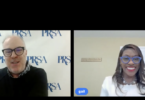How green is your green? Are you stretching the truth on your organization’s commitment to environmental sustainability? If so, you may be in conflict with the PRSA Code of Ethics. And very soon you also may be violating revised guidelines for environmental marketing proposed by the Federal Trade Commission (FTC).
Green claims are pervasive (and sometimes spurious), and it’s become far too difficult to determine who is telling the whole truth and nothing but the truth. Misleading eco-statements are so common, in fact, that they have a name: “Greenwashing.” They also became the focus of a PRSA Professional Standards Advisory (PSA) in 2009.
That Advisory noted that exaggerated claims of environmental responsibility go to the heart of the PRSA Code of Ethics, which takes a strong stand against misrepresentation of any kind, whether a claim falls into a gray area open to interpretation or has no substance whatsoever.
PRSA’s Board of Ethics and Professional Standards (BEPS) noted that Greenwashing conflicts with the Code on several levels. It corrupts our professional obligation to a free flow of accurate information, contributes to unfair competitive claims, and violates our commitment to communications that can be evaluated accurately. Practitioners were reminded of their responsibility “to educate decision makers about the potential damage to the reputation of the company if these claims are shown to be false, misguided or misleading.”
The FTC says its Consumer Perception Research indicates, not surprisingly, that claims using terms such as “renewable materials,” “environmentally friendly” or “renewable energy” are interpreted by consumers to mean far more than they sometimes do. In addition, some “certifications” have little or no meaning. New guidelines would require disclosure of additional details about the relationship with the certifying entity.
The FTC has opened its proposed new rules for public discussion through Dec. 10, and it appears that some helpful guidance is on the way. If approved, communicators who have been frustrated by a competitor’s dubious claims (or their own organization’s push for stronger “green” statements) should see some improvement. In addition, claims that pass muster with the FTC should have more credibility and enhanced reputational value. And very important to the profession, the guidelines will encourage communications behavior more consistent with the PRSA Code of Ethics.
There’s still a gray area that won’t be addressed by these guidelines, however. Mitchell J. Katz of the FTC’s Office of Public Affairs tells me that the guidelines apply only when communications are designed to sell something. Depending on the context, corporate image advertising and public relations could be fully protected speech if it’s not directly tied to sales. Too, Katz describes much of the communication about sustainability as “soft claims.” If the communication is “aspirational,” meaning an organization’s message is that it’s committed to a goal of sustainability but isn’t claiming certain results, it’s not an FTC matter. If the messaging is used in a clear effort to sell products or services, it’s under the FTC’s purview. That’s a big gray area.
Unfortunately, those “soft claims” leave the door open for continued ethical abuse. Our goal as PRSA members who abide by a Code of Ethics must be to demonstrate best behaviors as outlined very clearly in the PRSA Code and the PSA on “Greenwashing” — and to encourage others to do the same. We should abide by a higher standard than these new and much improved FTC guidelines.
Thomas E. Eppes, APR, Fellow PRSA, is chair of PRSA’s Board of Ethics and Professional Standards (BEPS).






